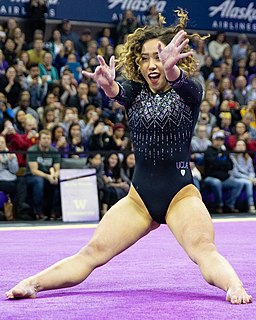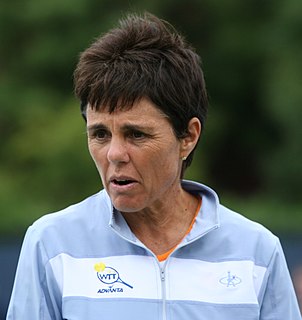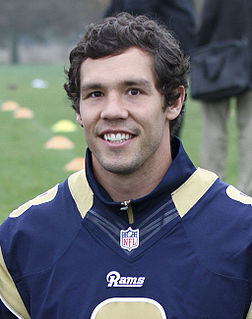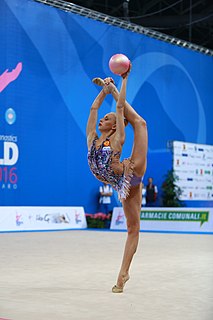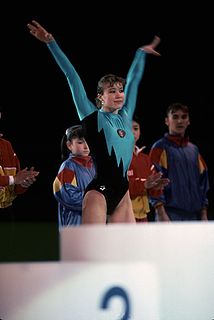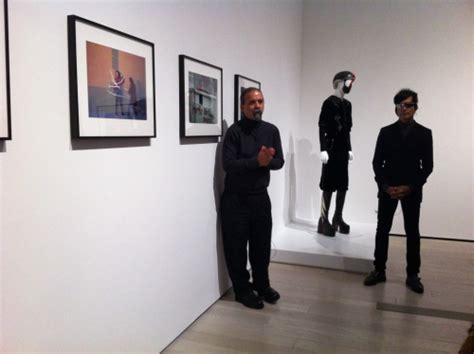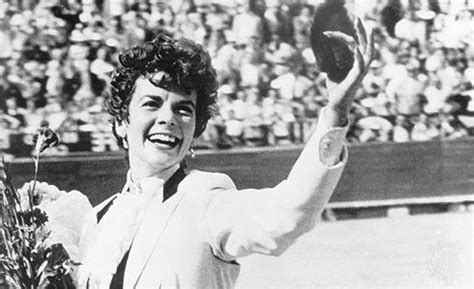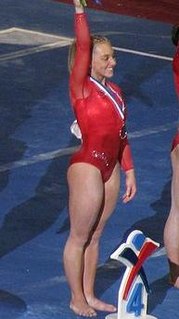A Quote by Nadia Comaneci
I think gymnastics was associated with the 10. I thought that belonged to the sport, and somehow we gave it way.
Quote Topics
Related Quotes
With gymnastics, I know I was making some people in that world mad because they thought that I wasn't focused on gymnastics. They were like, 'Ugh, she won't get off social media, she's always tweeting.' They wanted me to be America's sweetheart. And I think I've never fit into that cookie cutter person.
Bullfighting has some of the elements of a sport or contest, and in the United States most people think of it as a sport, an unfair sport. If you're in Spain or Mexico it's absolutely not a sport; it's not thought of as a sport and it's not written about as a sport. It has elements of public spectacle, but then so does, for example, the Super Bowl. It has elements of a deeply entrenched, deeply conservative tradition, a tradition that resists change, as you pointed out.


